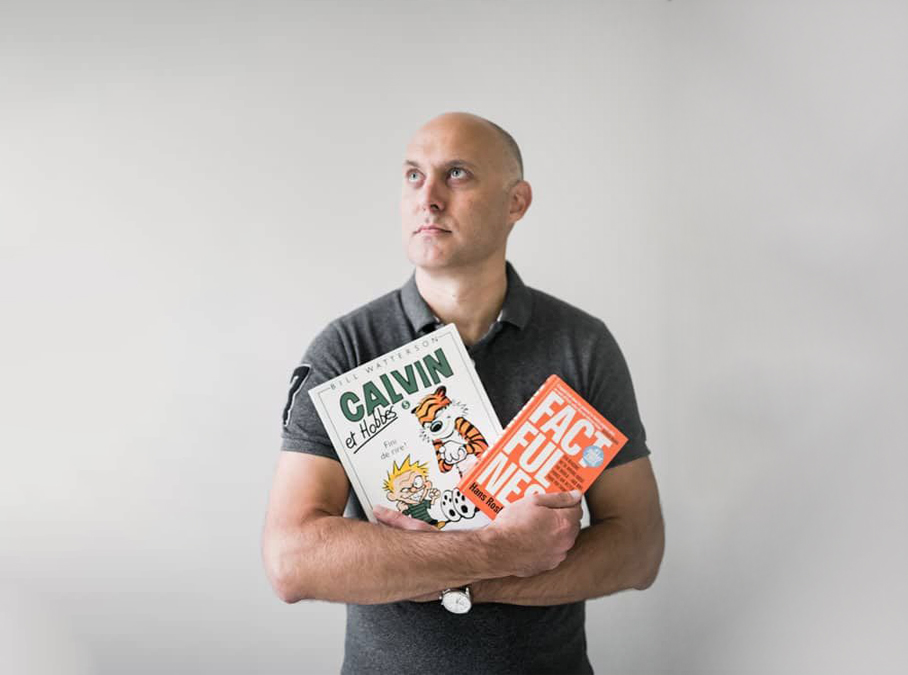- Can you share with us Axuall’s origin story? How did it come together and why?
We formed Axuall in 2019 to address modern history’s biggest supply chain problem: the clinical workforce supply chain. Coming off the heels of my last big data company in healthcare, Explorys (sold to IBM in 2015), it became clear that there was a serious information gap in healthcare related to clinician data. Timely, accurate, and comprehensive data about providers is critical to making informed decisions about planning, recruiting, and quickly onboarding resources, particularly in an era of increased demand and workforce shortages. Clinicians represent the highest cost and primary source of revenue to healthcare organizations, all struggling with rising costs, high attrition, and burnout.
Axuall is a workforce intelligence company developed with leading healthcare organizations built on a national real-time Clinician Data Network. We connect health systems, staffing firms, and digital health groups to a vast array of data, providing insights for network planning, analytics, and reporting while dramatically reducing onboarding and enrollment time via provider-enabled digital credentials.
- While you’ve spent time in larger companies, you have co-founded and grown several start-ups. Was there something in your past, or growing up, that planted the entrepreneurship seed in you?
I grew up in an immigrant family with entrepreneurial parents, grandparents, and siblings, so I guess it’s in my blood. There is a thrill in creating something new that solves problems for others without the constraints of legacy inhibitors. I started my first computer company at 15, and I’ve been blessed to work with customers and partners who share our visions over the years. That said, my time in big companies was also instrumental in my professional development. Seeing how large “organisms” make decisions, manage execution risk, and navigate cultural challenges taught me much about the perspective and thinking of the enterprise customers we sell into and serve today.
- You’ve worked in both banking and healthcare, two of the most regulated (and important) industries there are. How would you compare the challenges of each?
When I entered healthcare with Explorys in 2009, we had no choice but to make comparisons to the financial space. As crazy as it might sound, my co-founder, Steve McHale, and I had no experience in healthcare. We were fortunate to meet some innovative people at the Cleveland Clinic who knew they had to apply out-of-the-box thinking to address the actuarial challenges of value-based financial models, and given my experience in leveraging big data to manage consumer and organizational risk in banking, it was a way bridge that gap between us and industry.
The financial industry constantly measures and manages risk, often driven by seismic economic shifts and consumer behaviors. Healthcare must also deal with economic, pandemic, and consumer/patient behavior risks, not to mention a workforce that sees the world much differently than five years ago. Objective data should be at the heart of how healthcare addresses these challenges, lest they be doomed to repeat past mistakes.
- If there’s one thing you could change about the US healthcare system, what would it be?
The billions of dollars associated with administrative waste and resource mismanagement are significant problems today. It robs everyone of the care and careers they deserve. We want to help change this.
- What are some of the more exciting trends you have seen in healthcare workforce development recently?
We’re very bullish on workforce intelligence. I was lucky to be part of a wave of patient intelligence and big data a decade back that gave rise to new ways to optimize outcomes and reduce costs. The parallels today with the workforce are just as exciting. The industry cannot address the workforce supply and demand gap only by hiring more doctors and nurses. There must be a data-driven approach to understanding care delivery and utilization trends to develop more efficient care team models and orchestration. Big data, analytics, and AI will play a prominent role in this, and we’re excited to be part of it.
- As a serial entrepreneur and founder of multiple companies, what advice do you have for new founders; what do you know now, that you wish someone had told you when you first started?
I suggest drawing a line in your mind from where you are today to where you want to take your team, customers, and investors in the future. This should go beyond the standard formulaic multi-year proformas that entrepreneurs start with. It should encapsulate your goals for how your team develops their career, how your customers will find you indispensable, and how you’ll return the capital your investors deserve for making their commitments to your company’s growth. With that timeline in place, catalog the deliverables and milestones to get there and the risks you’ll have to manage carefully along the way. Regarding risks, be honest and maniacal about how you rate and track them, along with the degree of probability, control, and impact they can have on your business. Great businesses are not built on models where everything must go right to make it work. Master this, and you’ll have happy employees, customers, and investors!
- What’s your go-to interview question for new hires?
What was the biggest mistake you made in your career, what led up to it, what impact did it have, and what did you learn from it? The answers to these questions tell a lot about someone’s thought process, self-awareness, and ability to adapt — all critical traits for being in a startup/scale-up.
- What are some of the unique challenges and opportunities launching and scaling your business in Cleveland?
Five years ago, I would have had a different answer, but to be honest, nowadays, there aren’t any – at least no more than any other city. Since COVID, much of the tech workforce has gone remote, so drawing from a limited metropolitan area is less of a factor. We’ve found ways to foster culture via creative video conferencing and regular in-person events. Having done several startups in Cleveland, I had a strong network of seed investors eager to fund and support us, some of whom were pilot customers. All to say, your local community can be a significant asset as you grow your business – even in the Midwest.
- How have your investors like AV8 been most helpful to you?
Our investors have been helpful in three key areas: metrics, contacts, and strategy. Key performance metrics such as ARR, burn multiples, EBITDA roadmaps, and expense ratios are critical to short and long-term tactics and strategy. Regularly asking yourself where the company is today and where it will be a year from now, given market conditions and run rates, allows leaders to adjust and adapt early and maximize capital.
Introductions to industry contacts are another benefit that AV8 and others have provided. Whether these referrals are to customers, partners, or other portfolio companies, these relationships and insights offer essential guidance and sometimes translate to large revenue deals.
Lastly, having industry-savvy investors to test new ideas with, particularly as it relates to revenue opportunity and competitive positioning, is something they are best suited to help with.
- What have you recently read or watched (books, TV, movies, etc) that others should know about?
While on vacation, I just read The Road Less Stupid by Keith Cunningham. It’s a book for entrepreneurs about managing risk and opportunities by applying facts over emotion and unfounded optimism. These lessons are particularly important for startups during the good and bad times they experience.


0 Comments